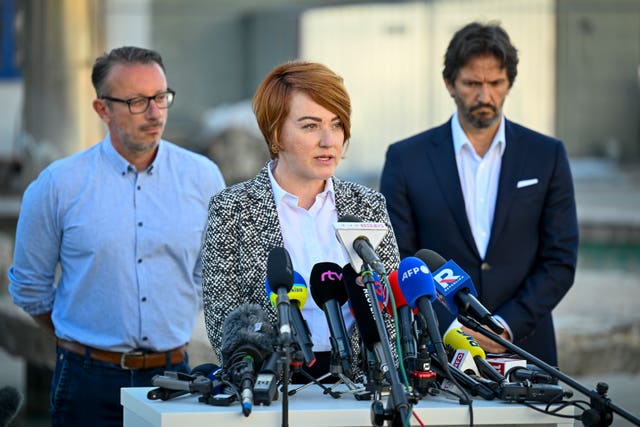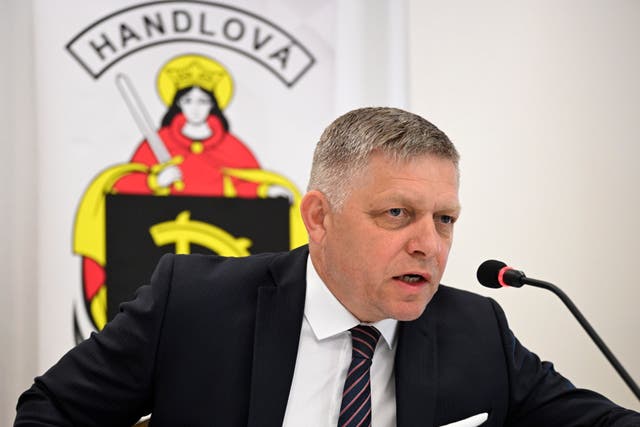Slovak Prime Minister Robert Fico is in a serious but stable condition after the populist leader was shot multiple times in an assassination attempt that shook the small country and reverberated across the continent weeks before European elections.
A suspect is in custody, and Interior Minister Matus Sutaj Estok said that an initial investigation found “a clear political motivation” behind the attack on Mr Fico while he was attending a government meeting in a former coal mining town.
Mr Fico has long been a divisive figure in Slovakia and beyond, and his return to power last year on a pro-Russian, anti-American message led to even greater worries among fellow European Union members that he would abandon his country’s pro-Western course.
Outgoing President Zuzana Caputova, a political rival of Mr Fico, said on Thursday that the heads of the country’s political parties would meet in an effort to bring calm. She said that the shooting was an “attack on democracy”.
Mr Fico’s government has halted arms deliveries to Ukraine and critics worry that he will lead Slovakia — a nation of 5.4 million that belongs to Nato — down a more autocratic path.
Thousands have repeatedly rallied in the capital and across the country to protest against Mr Fico’s policies on Ukraine and other issues, including plans to amend the penal code to eliminate a special anti-corruption prosecutor and to take control of public media.
Doctors performed a five-hour operation on Mr Fico, who was initially reported to be a in life-threatening condition, according to Miriam Lapunikova, the director of the FD Roosevelt Hospital in Banska Bystrica. He is being treated in an intensive care unit.

Five shots were fired on Wednesday outside a cultural centre in the town of Handlova, nearly 85 miles north east of the capital.
Slovakia’s Security Council was set to meet in the capital of Bratislava on Thursday to discuss the situation.
Mr Fico returned to power in Slovakia last year, having previously served twice as prime minister.
He and his Smer party have most often been described as left-populist although he has also been compared to politicians on the right like the nationalist prime minister of neighbouring Hungary, Viktor Orban.
Mr Fico’s comeback caused concern among his critics that he and his party — which has long been tainted by scandal — would lead Slovakia away from the Western mainstream.
He promised a tough stance against migration and non-governmental organisations, and campaigned against LGBT+ rights.

Despite the controversy surrounding Mr Fico’s leadership, condemnation of the attack came from both his allies and adversaries.
On Wednesday, Russian President Vladimir Putin sent a message to Slovak President Zuzana Caputova, expressing his support and wishing the Prime Minister a fast and full recovery.
“This atrocious crime cannot be justified,” Mr Putin said in the message released by the Kremlin. “I know Robert Fico as a courageous and strong-willed person. I truly hope these personal qualities will help him overcome this harsh situation.”
Ukrainian President Volodymyr Zelensky also denounced the violence against a neighbouring country’s head of government.
“Every effort should be made to ensure that violence does not become the norm in any country, form or sphere,” he said.




Comments: Our rules
We want our comments to be a lively and valuable part of our community - a place where readers can debate and engage with the most important local issues. The ability to comment on our stories is a privilege, not a right, however, and that privilege may be withdrawn if it is abused or misused.
Please report any comments that break our rules.
Read the rules here